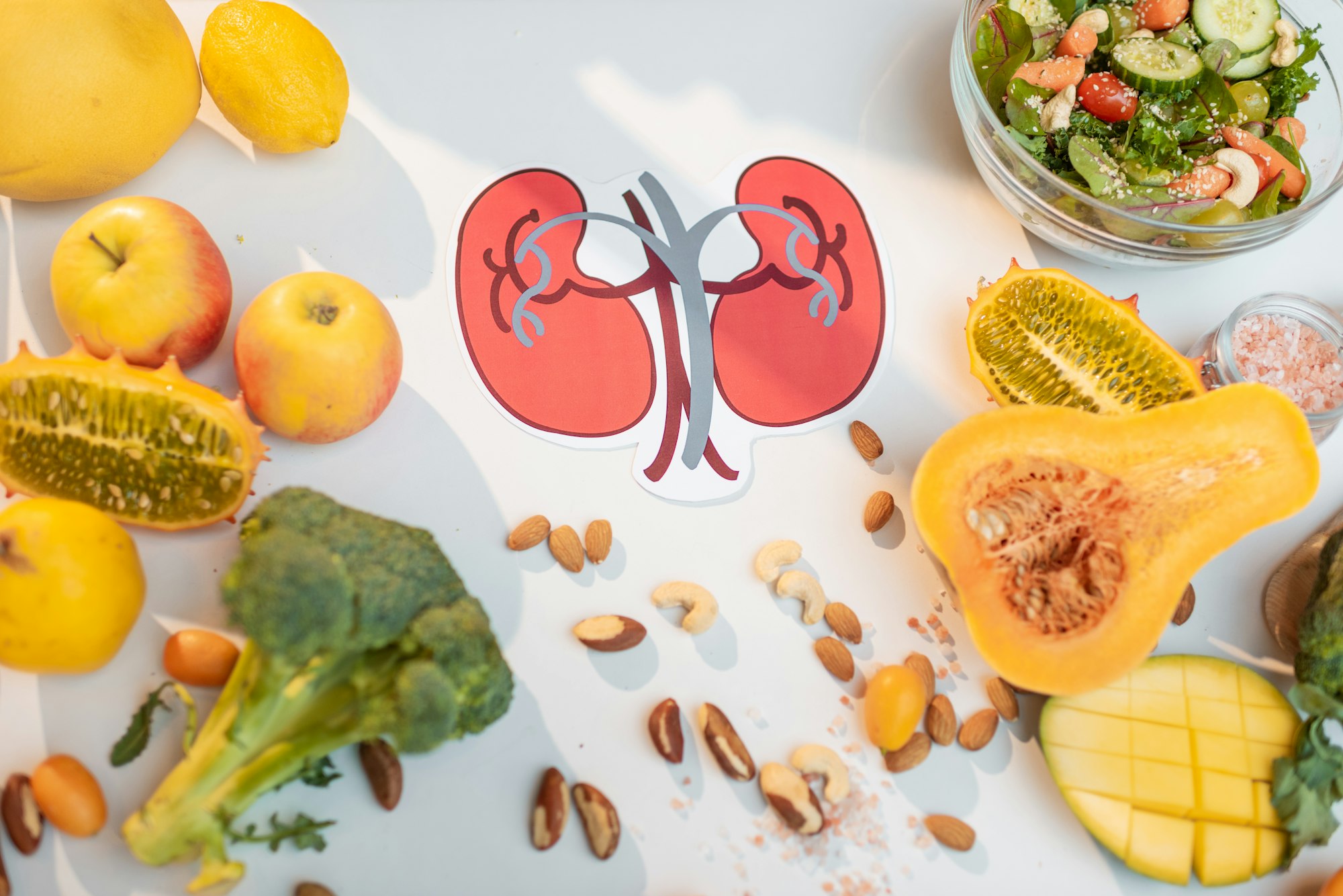Kidneys are essential organs that filter waste, regulate blood pressure, and maintain electrolyte balance. Unfortunately, the rise in Chronic Kidney Disease (CKD) is becoming a growing concern, especially for those with sedentary lifestyles. Modern jobs often involve long hours of sitting, limited movement, and unhealthy eating habits—all of which can negatively impact kidney health.
While CKD can be progressive and irreversible, the good news is that by adopting some healthy practices, you can reduce your risk and take proactive steps to keep your kidneys functioning optimally. Here are key strategies to prevent CKD and maintain kidney health, especially for those in desk-bound jobs.
Key Steps to Keep Your Kidneys Healthy
1. Stay Hydrated with Adequate Water Intake
Water is essential for kidney health, as it helps the kidneys remove toxins and waste from the blood. A common recommendation is to drink 6-8 glasses of water a day, but this varies depending on factors such as your activity level, climate, and health condition. Dehydration can cause waste to accumulate in the kidneys, leading to kidney stones or other complications. Stay mindful of hydration, especially when working long hours at a desk.
2. Eat a Balanced, Kidney-Friendly Diet
Your diet plays a critical role in keeping your kidneys healthy. Here are some key dietary guidelines:
- Limit sodium intake: Too much salt can raise blood pressure and strain the kidneys. Avoid processed foods and fast foods that are high in sodium.
- Choose whole grains, fruits, and vegetables: These provide essential nutrients that support overall kidney function.
- Limit protein and phosphorous: Eating high levels of protein, especially from animal sources, can put extra stress on your kidneys. Moderation is key, as is avoiding foods high in phosphorous such as red meat, dairy products, and processed foods.
- Control blood sugar levels: Poorly managed diabetes is a leading cause of CKD, so choose low-glycemic index foods and monitor your blood sugar if you are diabetic.
3. Manage Your Blood Pressure
Hypertension (high blood pressure) is a major risk factor for kidney disease. Sedentary lifestyles, often combined with unhealthy diets, can lead to elevated blood pressure. Regular exercise, reducing salt intake, managing stress, and taking prescribed medications are vital for controlling blood pressure. Regularly check your blood pressure, especially if your job requires sitting for long periods.
4. Incorporate Regular Physical Activity
Sitting for extended periods can reduce blood flow and increase the risk of conditions like obesity and hypertension, which are both linked to CKD. Incorporating physical activity into your daily routine is one of the most effective ways to support kidney health. Whether it’s taking short breaks to stand up, walking around during your lunch break, or integrating stretching exercises at your desk, regular movement can reduce the risks associated with a sedentary lifestyle.
Aim for at least 30 minutes of moderate physical activity most days of the week. Activities like walking, swimming, or cycling can improve cardiovascular health and reduce strain on your kidneys.
5. Avoid Smoking and Limit Alcohol Intake
Smoking damages blood vessels, reduces blood flow to the kidneys, and can accelerate kidney disease. Similarly, excessive alcohol intake can lead to dehydration, liver disease, and high blood pressure, which all contribute to CKD. Quitting smoking and moderating alcohol consumption can significantly lower your risk of developing kidney disease.
6. Maintain a Healthy Weight
Excess weight puts added pressure on your kidneys to filter more blood than necessary, which can eventually lead to damage. Maintaining a healthy weight through proper nutrition and regular exercise helps reduce the risk of kidney disease. Use tools like a BMI calculator to ensure you’re within a healthy weight range for your height and body type.
7. Limit the Use of Over-the-Counter Painkillers
Nonsteroidal anti-inflammatory drugs (NSAIDs) like ibuprofen and aspirin can damage your kidneys, especially if used frequently or in high doses. If you rely on these medications for pain relief, consult your doctor for safer alternatives that are kidney-friendly.
8. Get Regular Health Check-ups
Routine medical check-ups allow early detection of any signs of kidney disease. Regularly check your blood pressure, blood sugar levels, and kidney function, especially if you have risk factors like hypertension or diabetes. Early intervention is crucial in preventing the progression of CKD.
How to Avoid Chronic Kidney Disease: A Key Best Practice
Practice Healthy Sitting Habits
Given the increasing concerns about CKD in sedentary jobs, one of the best practices to avoid kidney damage is to break the cycle of prolonged sitting. Here’s how you can improve your habits:
- Take frequent breaks: Stand up, stretch, or take a short walk every 30 minutes. This helps to maintain blood circulation and prevent fluid retention, which can stress the kidneys.
- Use a standing desk: If possible, incorporate a standing desk or a sit-stand workstation to reduce the time spent sitting.
- Stay active during downtime: Use lunch breaks or downtime between tasks to move around. This keeps your body active and reduces the risk of obesity, hypertension, and diabetes, which are leading causes of CKD.
Incorporating these healthy sitting habits can help prevent kidney damage and improve overall health, especially for people with desk jobs.
Conclusion
Chronic Kidney Disease is a growing concern, especially with the rise in sedentary jobs. However, by adopting a proactive approach that includes hydration, a balanced diet, regular exercise, and healthy sitting habits, you can reduce your risk of CKD and support optimal kidney function.
The key to preventing CKD is maintaining a lifestyle that promotes overall health, reducing common risk factors like hypertension, diabetes, and obesity. Consult with your healthcare provider regularly for personalized advice and routine check-ups to ensure your kidneys stay healthy.
Remember, it’s never too early to start taking care of your kidneys!

Leave a Reply